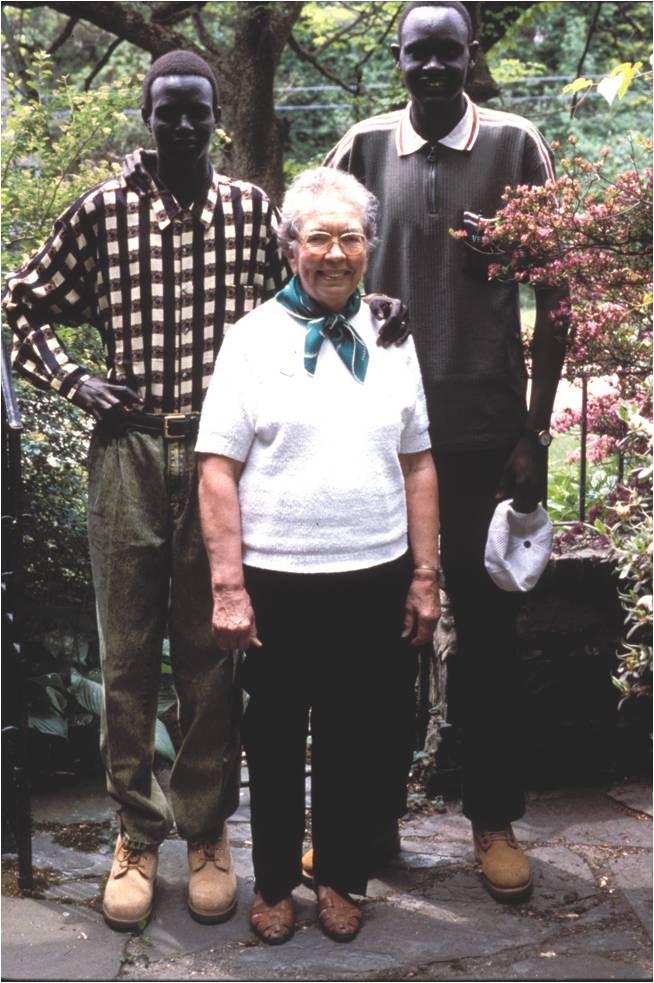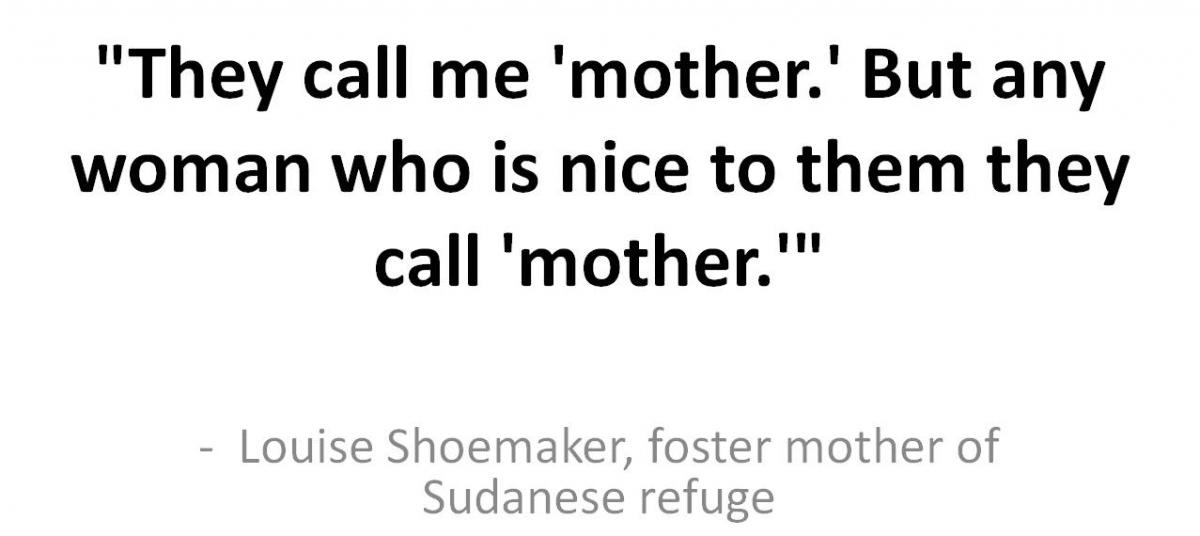Many African immigrants replace their absent extended family with “fictive kin,” members of the same ethnic or national community who play the role that family would at home. Community members may counsel young people, mediate during domestic conflict, provide moral and financial support at times of crisis or death, and help celebrate joyous events such as weddings, births, and graduations. In many cases the entire community functions as a kind of extended family.
 Many African immigrants are single men or men who have left their families at home. Often they have come to the U.S. in order to support economically the very people who are the most important part of their lives. These men may feel very isolated in the United States without their wives, children, and extended family network. Single men may get together to drink tea, listen to music, celebrate national or religious holidays, or simply chat in their native languages. Spending time with co-ethnics or co-nationals helps them to recreate the home context and to recover some of their identity.
Many African immigrants are single men or men who have left their families at home. Often they have come to the U.S. in order to support economically the very people who are the most important part of their lives. These men may feel very isolated in the United States without their wives, children, and extended family network. Single men may get together to drink tea, listen to music, celebrate national or religious holidays, or simply chat in their native languages. Spending time with co-ethnics or co-nationals helps them to recreate the home context and to recover some of their identity.
Another kind of fictive kin is found among the southern Sudanese "lost boys"  who were resettled in the Philadelphia area in 2000. After fleeing the civil war in their homeland, these boys lived in the Kakuma refugee camp in northern Kenya for years. There, they created fictive "families" with other older and younger refugees, groups that were kept intact when the boys were resettled in the U.S. Many of these young Sudanese are now living with American foster families, a new kind of fictive kin.
who were resettled in the Philadelphia area in 2000. After fleeing the civil war in their homeland, these boys lived in the Kakuma refugee camp in northern Kenya for years. There, they created fictive "families" with other older and younger refugees, groups that were kept intact when the boys were resettled in the U.S. Many of these young Sudanese are now living with American foster families, a new kind of fictive kin.
